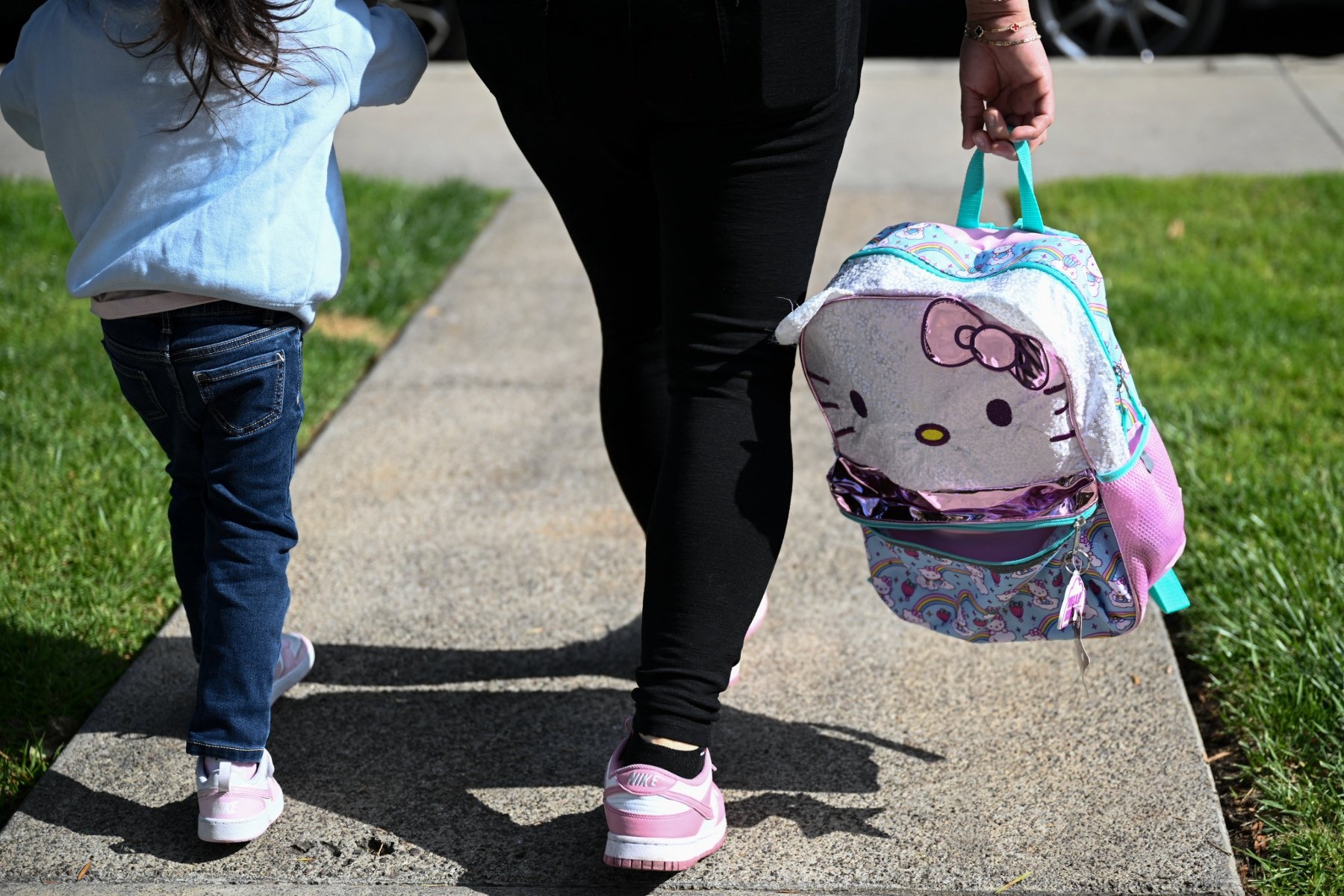Republicans would raise the child tax credit to $2,500 per eligible child in the tax-writing committee’s latest proposal. But the bill would also exclude millions of families from accessing the credit, including the country’s poorest households and immigrant or mixed-status families.
One provision of the bill requires a child’s parent or parents to have a Social Security Number, shutting out undocumented immigrants or those without work authorization, even when the child themselves has a Social Security Number. In mixed-status households, where one parent has a Social Security Number and the other doesn’t, the child is still ineligible.
Some estimates show this change could impact 4.5 million children alone. Coupled with proposals from other committees that restrict access to Medicaid or the Supplemental Nutrition Assistance Program (SNAP), immigrant and mixed-status families face drastically rising costs, according to Ashley Burnside, a senior policy analyst at the Center for Law and Social Policy.
“We’ll see more people having to make impossible decisions,” Burnside said. “As more families are arbitrarily restricted from accessing these critical health benefits, it’s going to result in a lot of hardship for people. That is going to make all of us worse off as communities.”
Many filers without Social Security Numbers use Individual Taxpayer Identification Numbers (ITINs) to pay taxes, but would no longer be able to access tax credits under this proposal — part of an administration crackdown on immigrants using public social services.
“Immigrant families, undocumented families, use ITINs to pay around $100 billion every year in taxes. The fact that they’re not able to benefit from any of these benefits intended for families undermines the idea that this is a pro-family, pro-worker provision,” said Kat Menefee, senior counsel for income security at the National Women’s Law Center Action Fund.
Through this proposal’s extension of changes from the last major tax overhaul in 2017, another 17 million of the country’s lowest-income households will still not have access to the full credit because they do not earn enough to pay federal income taxes — nor will an additional 1 million children who do not have Social Security Numbers. Before 2017, all children were eligible as long as their parents filed their tax returns and met the other credit requirements.
“This bill doubles down on that assault on those seeking the American Dream by stealing tax benefits and services to working people who are paying taxes,” Rep. Linda Sánchez, a California Democrat, said during a committee markup of the 2025 tax bill.
This version also eliminates the Direct File program, which allows households to file taxes with the IRS for free, and adds restrictions to applying for and receiving the Earned Income Tax Credit, potentially resulting in more families losing money meant to supplement lower-earning households.
The current House tax proposal will likely change significantly, with several other sections having garnered opposition from fellow Republicans in both chambers. But the principle of removing many immigrant and mixed-status households is likely to stay, as Republicans look to find any money to cut in alignment with President Donald Trump’s desire to slash federal spending.
More than 46 million taxpayers claim the child tax credit each year. During the pandemic, congressional Democrats and then-President Joe Biden temporarily increased the child tax credit to up to $3,600, expanded eligibility to more of the lowest-earning families and delivered the credit in monthly checks to recipients rather than in one lump sum. These changes lifted millions of households out of poverty. But the credit reverted back to $2,000 in 2022 — and child poverty rose soon after.
Last year, GOP senators and former Sen. Joe Manchin, a West Virginia Independent who used to caucus with Democrats, rejected a tax package that would have moderately increased the credit, part of legislation that had already passed the House with bipartisan support.

Support The 19th
Your donation will allow us to maintain our independence and remain true to our mission to represent women and LGBTQ+ people. Together, we’ll continue to cover this ongoing American story — without fear or favor.
The fact that Republicans had signed onto a House bill that expanded access to more lower-earning families — with direct involvement from Rep. Jason Smith, the Missouri Republican who chairs the Ways and Means Committee — shows that those same improvements are financially possible to add again, according to Bob Greenstein, a visiting fellow at the Brookings Institution.
But last August’s bill was proposed under former President Biden, and Republicans signed on to some Democratic policies. Now that the GOP controls the House, Senate and White House, Republicans “threw that over the side,” Greenstein added. Combined with proposed deep cuts to Medicaid and SNAP, families with modest or low incomes will be adversely affected, he said.
“It’s curious — the reconciliation bill as a whole really slams the working family, working paycheck-to-paycheck,” Greenstein said. “Those families (were also) the key part of the Trump base in 2024.”
Senators have a wider array of ideas to increase or improve the child tax credit, including a proposal to offset a parent’s payroll taxes from Sen. Josh Hawley, a Missouri Republican, though he has not yet filed official legislation, nor does he sit on the Finance Committee. Sen. Mike Crapo, the Idaho Republican who chairs the committee, has signaled interest in increasing the credit in some capacity, but he has historically been opposed to lowering the floor for qualifying family incomes, Greenstein noted.
Meanwhile, Democrats, led by Colorado Sen. Michael Bennet, have laid out an ambitious plan for an expanded, tiered credit system. But the bill is all but likely to gather dust in a harsh cost-trimming environment.
Lawmakers must decide on some change during the reconciliation process — otherwise, the credit reverts back to a $1,000 baseline in the fall.





